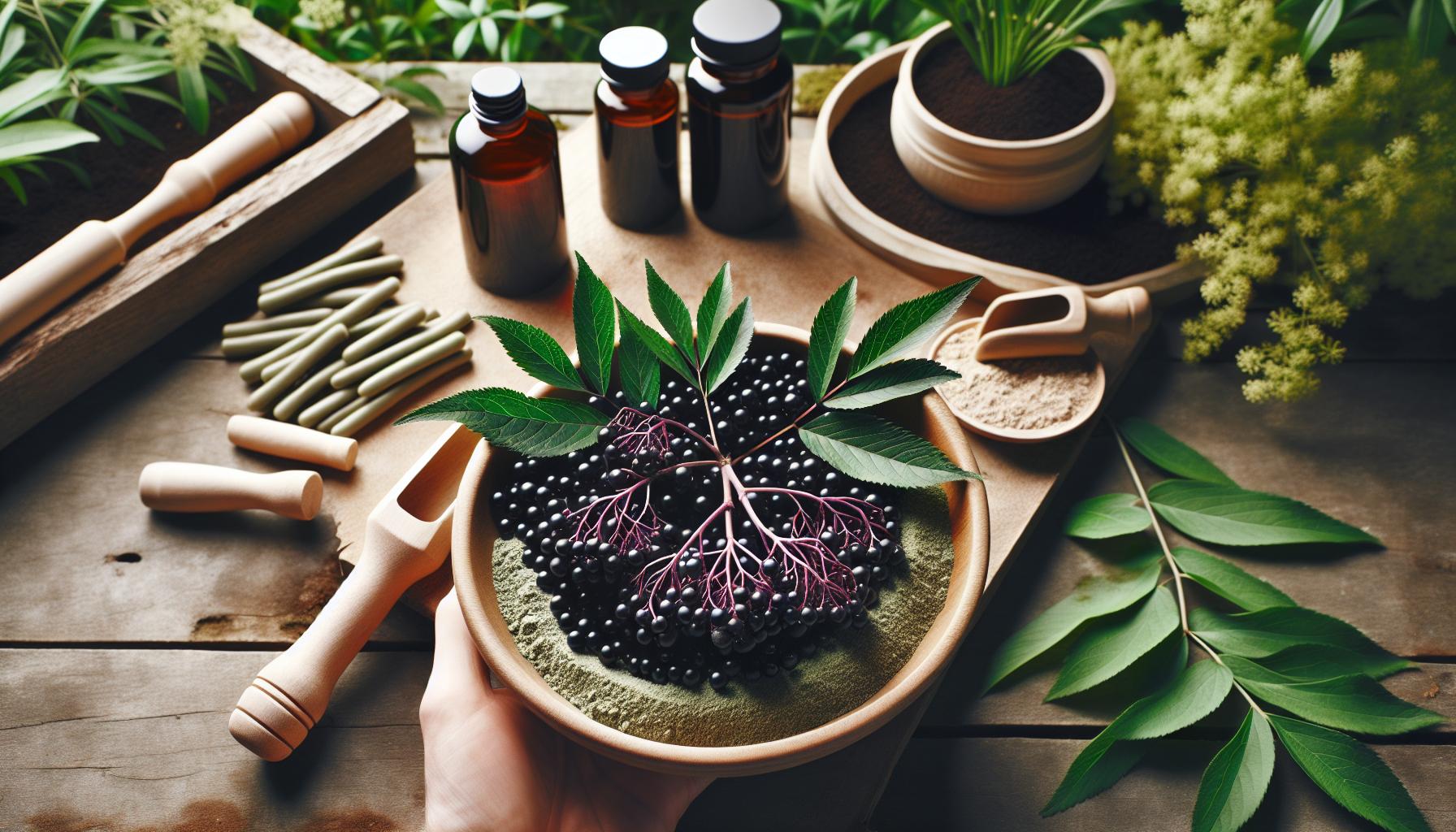
Do you need 2 elderberry bushes to get fruit?
Do I need to plant more than one shrub to get fruit? Answer: Elderberry, Sambucus canadensis, is a native shrub with edible fruit that is very easy to grow. Although the elderberry is self-fruitful, a more dependable and larger crop of berries will result from cross pollination of 2 different shrubs.
In the Green Groove with Growing Elderberry
Eager to embark on elderberry cultivation? You’re in the right place! As budding berry enthusiasts often inquire, “when should you plant elderberries?” The short answer is elderberry enjoys an early spring start. A frost-free growing season is needed and planting in early spring will give your elderberry plants the sprightly send-off they require. Throughout this article, we will delve into the entire process, providing useful tips for planting, nurturing, and harvesting your elderberry crop successfully.
The Dawn Dance: Spring Planting
The dawn of spring marks the perfect time to plant your elderberry cuttings. The period of thaw, when frost says its final farewells and the ground softens, offers an opportune moment for planting. This exact timing can vary depending on your geographical location and climate, but generally, anytime from early to mid-spring can be a good time.
Beware of the Big Freeze
Avoid planting elderberry cuttings during the winter months. The primordial embrace of winter could potentially freeze your plants and inhibit their growth. The crucial point is to avoid the freeze, and spring’s warmth provides the best conditions.
The Place for Planting: Perfect Spot Selection
The choice of where to plant your elderberry is as pivotal as pinning down the perfect timing. A sunny spot with well-drained soil will offer the best environment for your elderberry plants to thrive.
Embrace the Sunshine
Elderberry plants adore exposure to the sun, requiring at least 6 hours of daily sunlight. However, they can tolerate partial shade as well.
Post Planting Chores: Elderberry Care
Elderberry isn’t an overly fussy plant and takes to different soil conditions with beautiful resilience. Generally, it favors moist soils high in organic matter and a pH level between 5.5 and 6.5. After planting, it’s essential to water regularly, especially in the hot summer months, but avoid waterlogging the soil.
The Fertilizer Factor
To encourage growth and fruit production, feed your elderberries with an all-purpose garden fertilizer in early spring – the same time you’d plant new cuttings.
The Gatherer’s Gala: Harvesting Elderberry
Harvesting is the final, and perhaps the most exciting, stage in your elderberry journey. Elderberries generally become ripe in late summer to early fall. Patients is key as you wait for the clusters to ripen fully before you can pick them for your pies, wines, or medicinal tinctures.
Care with Clusters
When harvesting, it’s essential to cut off the entire fruit cluster rather than picking individual berries.
An Elderberry End: Final Thoughts
Elderberry cultivation isn’t just a garden endeavor; it’s a worthy tribute to the bountiful beauty of nature. It’s a dance with dawn, a sun-worshipping ritual, and a gatherer’s joyous gala. If you’re contemplating when to plant elderberries, let the first blush of spring be your guiding light.
Frequently Asked Questions
1. Do elderberries grow well in pots?
Yes, elderberries can grow in pots, but they flourish best in the ground where they can spread their roots wide.
2. Do elderberries attract pests?
Elderberries can attract birds and other wildlife that enjoy the berries. As for insects, elderberry borers can cause problems.
3. How much water does elderberry need?
Elderberries prefer moist soil but do not like waterlogged conditions. Therefore, moderate watering is needed.
4. How long does it take to grow elderberries?
In ideal conditions, elderberry plants can start producing fruit in their second or third year.
5. Do elderberries need a lot of sun?
Elderberry plants love the sun and require a minimum of six hours of sunlight each day to thrive. They can, however, tolerate partial shade.


